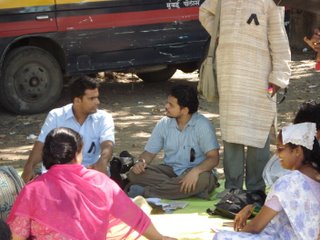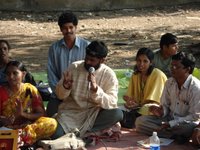Inherent conflicts - I
“There are two tragedies in life. One is to loose your heart’s desire. The other is to gain it"
Journalism ensures that a person is subjected to both of these divergent life experiences and often at the same time. The crux of the paradox is the functioning of the institution itself, which demands compliance and rebellion in unison. A feat uncannily achieved by stalwarts of the field or as I like to call them ‘survivors’.
As I explore my own sensibilities, perceived truths and judgment about many a “facts” I feel ill-equipped to understand them. Not due to lack of initiative or interest but solely because of the mistrust in what is being disseminated as relevant information. The act of reading, with time morphs into an exercise in extreme skepticism, following which one feels even more distraught than before.
Media is a unilateral institution, a corporate enterprise in the current context. The agenda of a media company is set by the benefactors and collaborators, which is quite obvious. The advertisers, corporate compulsions, the publisher’s personal beliefs, political affiliations et al are vital to what is presented before the unassuming public. The product that is sold in media is not the medium but the ‘audience’. If you look closely at the structural organization of this entity, it is very clear who the buyers and sellers are in this trade. And the commodity, the audience is certainly at a loss, as it is completely alienated from realizing what is perceptual as against what is real.
The establishment of these co-conspirators, if I may, makes it increasingly difficult for any of the units to deviate from the determined agenda. Now this is truly the disturbing part of the profession. The institution mandates that one must conform to the values of the ‘interests’ on which it depends, else your survival is unlikely. But, the perceived success in “true reporting” is in being anti-establishment, going beyond the generic and routine. The likely clash of interests here can be verified in those numerous worthwhile stories and ideas that go uncovered as they are not within the ideals upheld by the organization.
Also, the system ensures that those who reach a point of relevance in the social order to take decisions and determine opinion of the institution have imbibed those principles that are plausible and acceptable. It acts as a filtering mechanism, where a voice of dissent against its own is castrated to a point of submission. Hence, the editors and the news makers which are considered to be the key-opinionators have reached those positions because they choose to and have eventually conformed to the system. (As ably argued by Noam Chomsky)
Herein lays my predicament, the fact that I have to internalize the values of an institution to “succeed” in the traditional sense of the word, despite it incapacitating those very instincts which make it possible to function in this field. This logically extends to the widely held belief that one can be a good journalist or a successful journalist, not both.
At this point I do not know which one I aspire to be.












